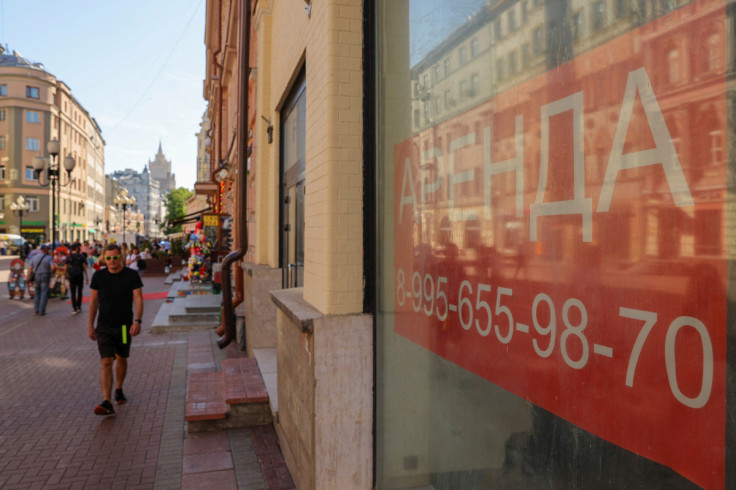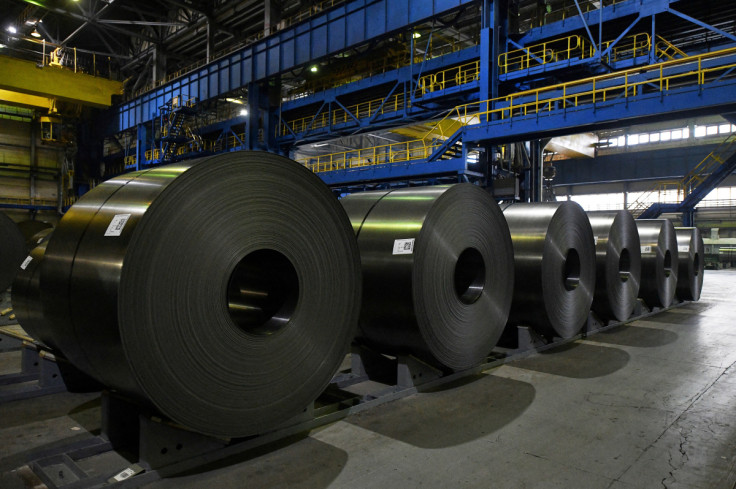Analysis-Russian Economy Holding Up But The Road Back To Prosperity May Be Long

Russia's economy proved unexpectedly resilient in the face of tough Western sanctions last year, but a return to pre-conflict levels of prosperity may be far off as more government spending is directed towards the military.
Even internal forecasts made soon after Moscow sent troops into Ukraine a year ago had predicted the economy would shrink by more than 10% in 2022, exceeding the slumps seen after the Soviet Union collapsed and during the 1998 financial crisis. But statistics agency Rosstat's first estimate shows a more modest contraction of 2.1% last year.
"The Russian economy and system of governance proved to be much stronger than the West supposed," President Vladimir Putin told Russia's political, military and business elite this week. "Their calculation did not come to pass."
High prices for its energy exports helped cushion the blow from sanctions aimed at isolating Russia economically, while capital controls saw the rouble strengthen to a seven-year high. A collapse in imports led to a record current account surplus.
The central bank, led by Elvira Nabiullina, kept a steady hand on the tiller despite losing access to around $300 billion worth of international reserves.
But analysts nonetheless see a substantial and long-lasting opportunity cost from what Moscow calls its "special military operation" in Ukraine. Before the conflict began, the government had forecast 3% economic growth last year.
"The fact that the economy surprised everyone last year is certainly a positive factor," said Grigory Zhirnov, an analyst for the My Investments Telegram channel. "However, it is better to compare the dynamic relative to what it would have been if the previous trend had continued."
Zhirnov said the economy would not regain its 2021 size until 2025, "and the level of GDP that could have been achieved in the absence of last year's crisis will hardly be reached in the next 10 years".
Moscow is finding new markets in Asia for its oil and gas exports, the economy's lifeblood, and has maintained the supply of consumer goods through a grey imports scheme. It increasingly shuns the Western markets that helped spur its post-Soviet growth, however, and is turning inwards.
A "de-dollarisation" drive means the rouble has doubled its share in Russia's international settlements, Putin said. Banks, meanwhile, are looking for domestic means of reviving profits.
Putin told business elites to invest in Russia, saying ordinary Russians felt no sympathy for their lost yachts and mansions.
'GUNS NOT BUTTER'
He also argued for sustainable domestic development and a self-sufficient economy, recalling a criticism levelled against Soviet leaders so focused on military spending they ignored people's welfare.
"There is a saying: 'guns not butter'," Putin said. "Defence of the country is, of course, the most important priority, but when solving strategic tasks in this area, we must not repeat the mistakes of the past, we must not destroy our own economy."
But Russia is ramping up military spending, and diverting funds from hospitals and schools will ultimately hamper the development of civilian economic infrastructure.
Rising expenditure and slumping revenues led to a $25 billion budget deficit in January, while the current account surplus more than halved from a year earlier.
High oil prices would normally be helping top up the rainy-day National Wealth Fund, but with its hydrocarbon exports now subject to embargos and price caps, Russia is currently selling Chinese yuan from the NWF to cover the deficit.
While the finance ministry has pledged the deficit will not spiral out of control, dipping into the fund risks reducing Moscow's future spending capacity and feeding inflation risks.
The central bank, whose analysis of Russia's economic health is consistently more pessimistic than Putin's, has warned that the widening budget deficit is inflationary and said it is more likely to hike interest rates from 7.5% this year than cut them.
Reaching this year's oil and gas revenue target is looking increasingly problematic, Oleg Vyugin, a veteran economic official, wrote in a report this month, especially as prices for Russia's Urals oil blend have fallen.
In order to meet budget plans, Russia would have to double its planned NWF spending, risking higher inflation that would force the central bank to raise borrowing costs.
"Implementing such a budget is a path to the gradual erosion of financial stability and the further decline of the population's real wages," Vyugin wrote.
Real disposable incomes shrank 1% last year, prompting Russians to save more and spend less. Retail sales fell 6.7%.
Russians' stronger propensity to save is a sign of the economic uncertainty, said Alexandra Prokopenko, an independent analyst and former advisor to the central bank.
Prokopenko, who also highlighted the opportunity cost to the economy, said Russia's financial leadership had become used to navigating crises. Similar officials have been in charge since the global financial crisis in 2008, steering the country through a deteriorating relationship with the West.
"We can say for sure that the picture isn't black and white. Putin can be proud of his 'Fortress Russia' that his financial leadership built for him," she said. "But it was built at a high cost."

© Copyright Thomson Reuters {{Year}}. All rights reserved.





















